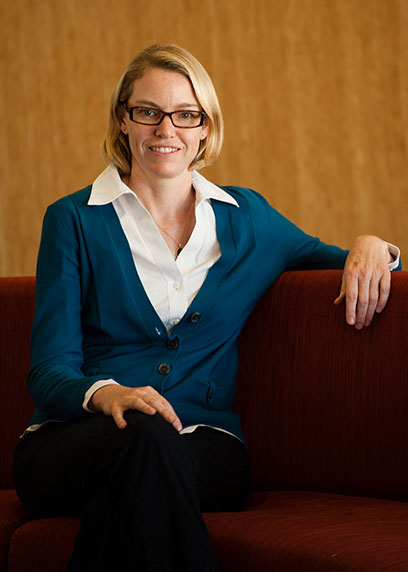

Alison Marsden
Stanford University, United States
“Computational modeling of coronary artery hemodynamics for personalized medicine in children and adults”
Cardiovascular disease is the leading cause of death worldwide, with nearly 1 in 4 deaths caused by heart disease alone. In children, congenital heart disease affects 1 in 100 infants, and is the leading cause of infant mortality in the US. Patient-specific modeling based on medical image data increasingly enables personalized medicine and individualized treatment planning in cardiovascular disease patients, providing key links between the mechanical environment and subsequent disease progression. I will discuss recent methodological advances in cardiovascular simulations that aim to increase rigor and clinically applicability, including (1) development of a complete pipeline from clinical data assimilation to uncertainty quantification in patient-specific simulations, and (2) novel methods for fluid structure interaction with fully incompressible tissue properties and incorporating wall mechanobiology. Clinical application of these methods will be demonstrated in two applications of patient-specific modeling in the coronary arteries: 1) coronary bypass graft surgery and the biomechanics of vein graft failure, and 2) risk stratification in pediatric patients with Kawasaki disease. We will provide an overview of our open source SimVascular project, which makes our tools available to the scientific community (www.simvascular.org). Finally, I will discuss future directions in fluid solid growth simulations and whole-heart modeling, challenges of translating modeling tools to the clinic, and applications to a range of adult and pediatric cardiovascular diseases.
Short CV
Alison Marsden is an associate professor in the departments of Pediatrics, Bioengineering, and, by courtesy, Mechanical Engineering at Stanford University. She is a member of the Institute for Mathematical and Computational Engineering. From 2007-2015 she was a faculty member in Mechanical and Aerospace Engineering at UCSD. She graduated with a BSE degree in Mechanical Engineering from Princeton University in 1998, and a PhD in Mechanical Engineering from Stanford in 2005. She was a postdoctoral fellow at Stanford University in Bioengineering from 2005-07. She was the recipient of a Burroughs Wellcome Fund Career Award at the Scientific Interface in 2007, an NSF CAREER award in 2011, and was elected as a fellow of AIMBE and SIAM in 2018. She has published over 100 peer reviewed journal papers and serves on the editorial board of several journals. Her research focuses on the development of numerical methods for cardiovascular blood flow simulation and application of engineering tools to impact patient care in cardiovascular surgery and congenital heart disease.